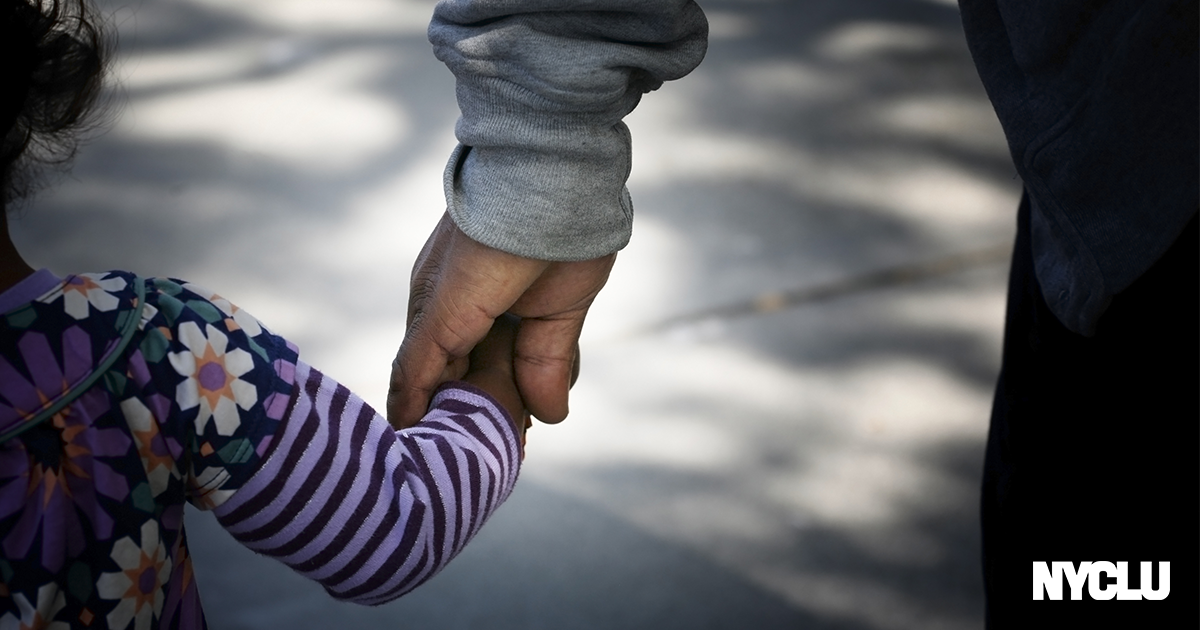How the So-Called “Child Welfare System” Hurts Families

It’s a scenario that many parents across New York State, particularly in low-income areas, have come to fear: A knock on the door from a Child Protective Services caseworker.
A visit by CPS is often prompted by a report made to the state – sometimes anonymously – by a neighbor, teacher, former partner, or someone the family barely knows. In the large majority of cases, the report is not for alleged abuse, but some form of perceived child neglect – a messy home, a child playing outside by themselves, or even a missed remote learning appointment. Once it receives a report, a local agency is required under the law to investigate, no matter how minor the allegation.
A parent who gets a visit from CPS usually won’t be told anything about their rights. Instead, they will be told they need to let the caseworker into their home, make their children available for questioning and sometimes body searches, and sign releases for private medical or school information.
They will be asked probing questions about their backgrounds and have every aspect of their lives put under a microscope. Everything a parent tells a caseworker can be used against them in court. Some parents might have their children removed before ever even seeing a courtroom, a lawyer, or learning their rights.
If CPS thinks that a situation meets the legal definition of neglect, they will often file a petition in family court, where they may ask for the children to be separated from their family. That’s when most parents will talk to a lawyer for the first time and learn about their legal options.
At that point, parents face a Kafkaesque court system that too often presumes the worst about them. Children who are removed can spend years, if not their entire childhoods, in foster care.
Even if a family isn’t separated, they will often spend months under the court-ordered supervision of CPS, while parents do their best to comply with onerous requirements that are rarely tailored to their actual needs.
These situations are an all too common part of what is sometimes called the “child welfare system,” but is more accurately described as the family regulation system. This system consists of an assemblage of laws, policies, and government agencies that intervene in private family life with the ostensible aim of protecting children.
“I can’t sleep. I’m up. I’m hugging my child. I’m feeling like he’s gonna be removed from my home. And these are things that are unhealthy for a mom.”
Historically, many policymakers have viewed these systems solely through the prism of child protection. But now, in response to years of dedicated organizing by affected parents, more policymakers are waking up to the disproportionate harms that this system imposes on poor families of color. They are finally seeing the family regulation system as an issue of racial and economic justice.
At a hearing last week held by the New York State Assembly, parents and advocates from across New York State testified about their experiences with the family regulation system. Parent Desseray Wright testified that, although she just graduated from school in criminal justice, when ACS comes to her door, “Everything that I’m learning, everything that I’m retaining, everything that I know is right just goes out the window.”
She spoke of PTSD, explaining, “I can’t sleep. I’m up. I’m hugging my child. I’m feeling like he’s gonna be removed from my home. And these are things that are unhealthy for a mom.”
The parallels between the family regulation and criminal legal systems are hard to ignore. Both systems overwhelmingly impact Black, Brown, and Indigenous people, and both effectively treat circumstances of poverty as offenses to be punished. Yet in critical ways, those subject to the family regulation system have even fewer protections than defendants in the criminal legal system.
Fortunately, we have a chance to build on renewed awareness of the harms of the family regulation system by ushering in real policy change in New York.
One bill in the State Legislature would require CPS caseworkers to immediately inform parents of their right to remain silent, speak to a lawyer, and not permit entry into their home. Similar to Miranda warnings given to people in criminal custody, this bill would allow parents to make informed, sound decisions at a particularly vulnerable moment in CPS investigations.
Another bill would prohibit anonymous reports of child neglect to the state central registry by requiring callers to leave their names and contact information when making a report, while maintaining confidentiality. In many instances, false anonymous reports are used as a form of domestic harassment or to settle grievances.
A third bill would require that pregnant or perinatal people give written informed consent before being subjected to medically unnecessary drug testing in New York hospitals. This legislation would help curb the practice of discriminatory drug testing of parents that can lead to the parents being separated from their newborn children.
The largely poor, disproportionately Black and Brown parents and children who experience the family regulation system have long understood it as a form of policing and surveillance. It is past time that all advocates for civil rights recognize this perspective, and treat the family regulation system as a core civil liberties concern.
Over the past year, calls have grown louder for police department funding to be shifted to supportive social services. As states and cities look to do that, they must be mindful not to replicate the harms of policing in other areas. The family regulation system is an unfortunate reminder of what that can look like.
Transforming this system is essential as we struggle for racial and economic justice.
